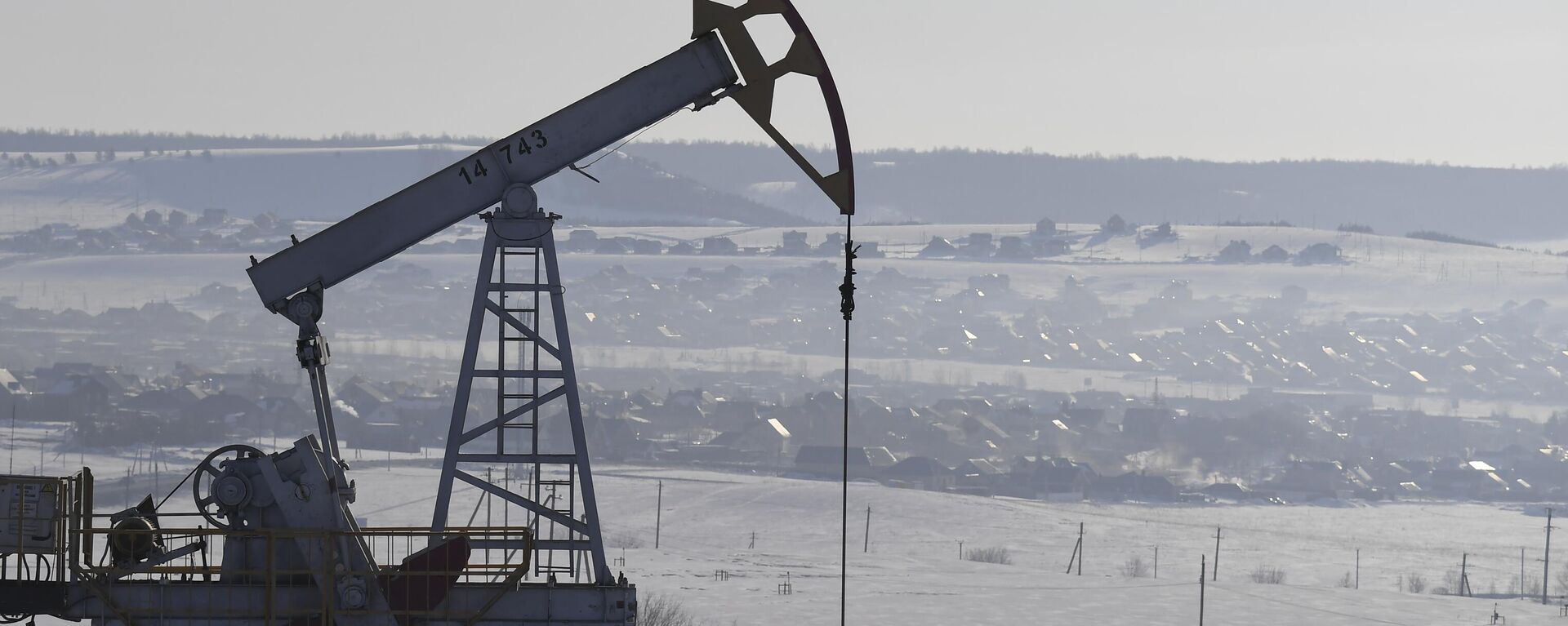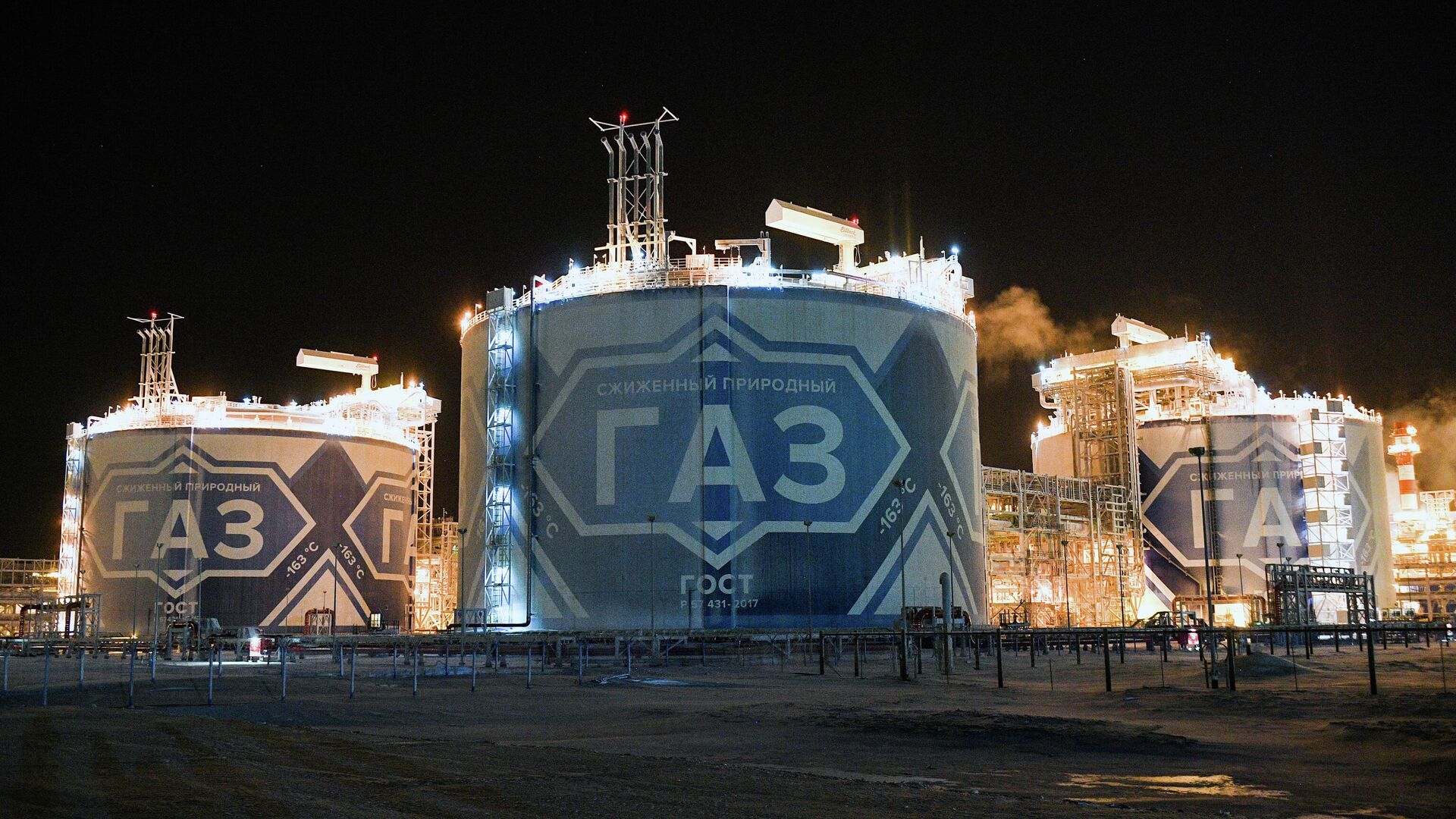https://sputnikglobe.com/20231116/russia-set-to-record-75-billion-account-surplus-amid-booming-energy-sales-1115008524.html
Russia Set to Record $75 Billion Account Surplus Amid Booming Energy Sales
Russia Set to Record $75 Billion Account Surplus Amid Booming Energy Sales
Sputnik International
Thanks to an increase in exports of petroleum, gas, and other energy products this year, the Russian government’s current account is expected to post a surplus of some $75 billion this year, based on new central bank data.
2023-11-16T18:40+0000
2023-11-16T18:40+0000
2023-11-16T18:40+0000
russia
russia
bank account
surplus
exports
energy
https://cdn1.img.sputnikglobe.com/img/07e6/09/0d/1100716249_0:160:3073:1888_1920x0_80_0_0_f73ce96a181ff8bce12e64da846e9f9d.jpg
The Central Bank of the Russian Federation said on Tuesday that the current-account surplus amounted to $53.8 billion as of November 1, about four times the level it was at just a year prior. October followed September as the second straight month in which the account had an $11 billion surplus.As a result, a US business newspaper has updated its projection for the year, estimating Russia’s account will have $75 billion in it by the end of next month, assuming the trend continues.The world’s largest energy exporter, Russia has benefited from high prices for oil and gas, despite Western attempts to smother the Russian economy with trade boycotts and other sanctions in response to the conflict in Ukraine. Russian exports that formerly flowed into Europe have largely been redirected toward Asia and Africa, although some customers, such as the United States, have continued to buy Russian enriched uranium for their nuclear power plants and European buyers have sometimes resorted to quietly buying Russian gas through third parties.Standard & Poor’s reported recently that Russian seaborne oil exports hit a four-month high in October.Trade has especially bloomed with the People’s Republic of China, which Russian President Vladimir Putin estimated would hit $200 billion this year, having risen by one-third in the first eight months of 2023. China is the recipient of 47% of Russia’s petroleum exports and 45% of its coal exports, and new projects to link Russian and Chinese gas pipelines were announced, including the Power of Siberia 2 pipeline.
https://sputnikglobe.com/20231114/iea-suggests-russias-oil-production-up-in-october-by-30000-bpd-to-953mln-bpd-1114942605.html
russia
Sputnik International
feedback@sputniknews.com
+74956456601
MIA „Rossiya Segodnya“
2023
News
en_EN
Sputnik International
feedback@sputniknews.com
+74956456601
MIA „Rossiya Segodnya“
Sputnik International
feedback@sputniknews.com
+74956456601
MIA „Rossiya Segodnya“
russian account surplus, russian central bank, how much money does russia have, russian gas exports
russian account surplus, russian central bank, how much money does russia have, russian gas exports
Russia Set to Record $75 Billion Account Surplus Amid Booming Energy Sales
Thanks to an increase in exports of petroleum, gas, and other energy products this year, the Russian government’s current account is expected to post a surplus of some $75 billion this year, based on new data from the country’s central bank.
The Central Bank of the Russian Federation said on Tuesday that the current-account surplus amounted to $53.8 billion as of November 1, about four times the level it was at just a year prior. October followed September as the second straight month in which the account had an $11 billion surplus.
As a result, a US business newspaper has updated its projection for the year, estimating Russia’s account will have $75 billion in it by the end of next month, assuming the trend continues.
The account measures the difference between money coming into the Russian Federation through trade, investments, and wire transfers, as compared to money flowing out of the country.

14 November 2023, 09:57 GMT
The world’s largest energy exporter, Russia has benefited from high prices for oil and gas, despite Western attempts to smother the Russian economy with trade boycotts and other sanctions in response to the conflict in Ukraine. Russian exports that formerly flowed into Europe have largely been redirected toward Asia and Africa, although some customers, such as the United States, have continued to
buy Russian enriched uranium for their nuclear power plants and European buyers have sometimes resorted to quietly
buying Russian gas through third parties.
Standard & Poor’s reported recently that Russian seaborne oil exports hit a four-month high in October.
Trade has
especially bloomed with the People’s Republic of China, which Russian President Vladimir Putin estimated would hit
$200 billion this year, having risen by one-third in the first eight months of 2023. China is the recipient of 47% of Russia’s petroleum exports and 45% of its coal exports, and
new projects to link Russian and Chinese gas pipelines were announced, including the Power of Siberia 2 pipeline.



